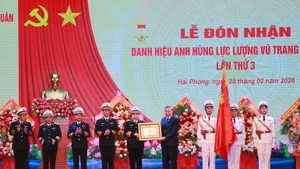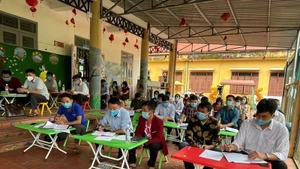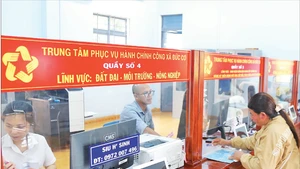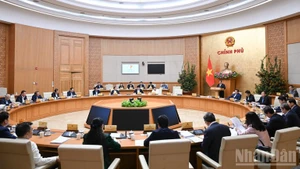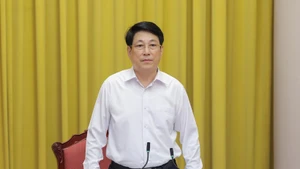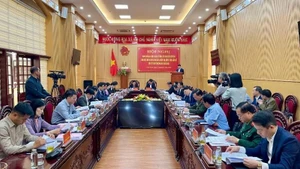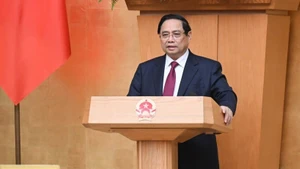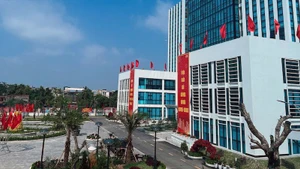In concretising the Party's guideline, Resolution No.66-NQ/TW dated April 30, 2025, issued by the Politburo, on renewing the development and enforcement of laws to meet the requirements of national development in the new era, sets out specific goals and timelines. Accordingly, by 2025, Viet Nam aims to resolve legal “bottlenecks”. By 2027, the country targets the completion of revisions, amendments, and enactment of new legal documents to ensure a synchronised legal foundation for the operation of the state apparatus under the three-tier government model. By 2028, the legal framework for investment and business is expected to be completed, helping to position Viet Nam’s investment environment among the top three in ASEAN.
Guided by the Party’s firm commitment, legal reform and enforcement have become central and ongoing tasks across all Party and government institutions, closely tied to the goal of rapid and sustainable national development.
To implement Resolution 66-NQ/TW, the Party Committee of the National Assembly (NA) adopted Plan No. 28-KH/DUQH, outlining 11 key tasks with clear timelines. The timely introduction and execution of this plan significantly contributed to the success of the 9th session of the 15th NA. Notably, the legislature passed the amended 2013 Constitution (as revised in 2025), and several major laws, particularly those establishing the framework for a two-tier local government model, administrative unit restructuring at the provincial level, and expanding development space for localities.
Following the principle of "the central agencies lead by example, localities respond", provinces and cities nationwide have actively formulated and implemented legal reform strategies tailored to their local conditions. In Quang Ninh, the Provincial Party Standing Committee promptly issued Programme No.50-CTr/TU on June 9, 2025, to carry out Resolution No.66-NQ/TW. The programme identifies seven priority task groups aligned with the province’s development roadmap. It emphasises coherence with Party directives from the Politburo, Secretariat, and the provincial leadership on judicial affairs and the construction of a socialist rule-of-law state in the new period.
Based on this foundation, the Standing Board of the Quang Ninh Provincial Party Committee has set the goal of removing most legal “bottlenecks” that hinder or obstruct local socio-economic development within 2025, while simultaneously implementing a two-tier local government model. This political determination has been concretised through a series of solutions such as cutting and simplifying unreasonable investment, business, and professional conditions and administrative procedures; promoting technology application; building mechanisms to promptly identify and eliminate legal inadequacies; and inspecting, reviewing, systematising, and evaluating the effectiveness of legal normative documents after issuance.
The Standing Board has been regularly urging and instructing cadres, civil servants, and public employees to uphold a strong spirit of serving the people; increase dialogue, listen to feedback and recommendations; proactively conduct supervision, inspection, and audits; and strictly handle misconduct and abuse of power, while addressing the tendency to shirk or avoid responsibility.
Lessons learned from previous administrative reform efforts in the province have been being creatively applied in the implementation of Programme No.50-CTR/TU, yielding positive initial results. By the end of June 2025, nearly 1,000 administrative procedures had been updated on the provincial information system, with nearly 74% of applications processed ahead of schedule on the electronic one-stop-shop platform, the highest rate to date.
From July 1, the Provincial Public Administrative Service Centre officially launched its administrative procedure resolution information system at 54 communes, wards, and special zones, greatly facilitating citizens and businesses in submitting applications regardless of administrative boundaries. Quang Ninh currently provides nearly 80% of its administrative services without geographic constraints and aims to reach 100% by year’s end.
In his speech at the national conference on disseminating and implementing Resolution No.66-NQ/TW and Resolution No.68-NQ/TW of the Politburo, General Secretary To Lam emphasised: Laws must be seen as a solid foundation for protecting human rights and citizens' rights, and as a driving force for promoting socio-economic development. The current institutional reform must foster development and create sustainable momentum in building a prosperous, democratic, equitable, and civilised Viet Nam.
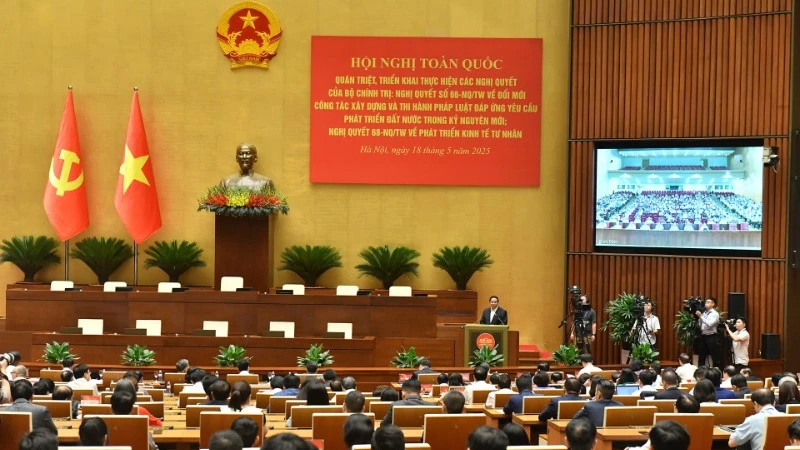
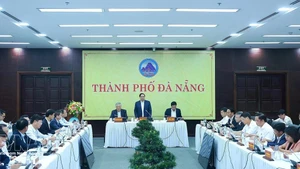
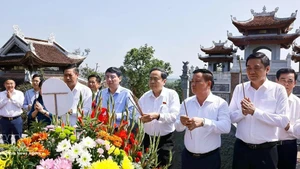
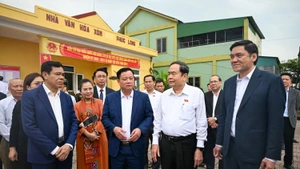
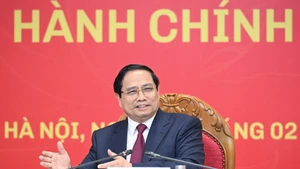
![[Photos] Party General Secretary presents title “Hero of the People’s Armed Forces” to the Navy](https://en-cdn.nhandan.vn/images/5992a12dd6e78b9bfb434962ff1830731c3ef6c1538d722fbb2593b0fa31ecfe38d01cdaaaab03a54304ad015b6d4ff5bdeadcaf72af28ae748ff126afbb566c/280226-tbt-6.jpg.webp)
